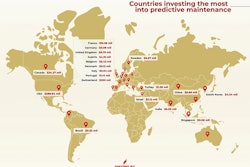
Establishing trust in the transportation industry is critical to long-term success for freight brokers, mainly since they act as a bridge between shippers and carriers.
However, many freight brokers still have difficulty building solid relationships with carriers, struggling with a lack of loyalty and slower rate negotiations. Building trust requires listening to a carrier's needs, honoring commitments, being transparent about any changes in rates or discounts, and, most importantly, paying on time. When trust is lost (or never gained in the first place), transportation delays, slow payments, and unclear communication and contracts may cause unrecoverable reputational and financial damages.
Because freight brokers and carriers earn trust both ways, brokers must also carefully vet carriers and review FMCSA credentials, financial health, and compliance and safety history. This is important in light of ongoing supply chain and economic issues.
How freight brokers can avoid breaking trust
The most common ways freight brokers break trust with carriers include:
- Not paying on time due to late shipments
- Not paying on time due to unpaid dealings with a low-credit shipper
- Incorrect payments due to manual errors
Additionally, "bad players" in the factoring space hide additional terms and fees – for example, late delivery, no check-in and fuel advance fees – into contracts. These companies often set accessorial fees with maximums, which go beyond the basics of dock-to-dock transportation and often require detention, layovers, driver assistance services, and unused orders. If not discussed up front, these hidden fees create serious distrust between freight brokers and carriers.
All this to say, trust is broken when tasks aren't completed on time or done reliably.
Both parties are responsible for completing jobs successfully. Carriers need to check on their loads and complete deliveries on time, while brokers need to pay carriers when promised. Even though these actions seem straightforward, they will help build trust between both companies. By automating back-end processes with technology and removing human error, brokers can increase their efficiency and transparency and build trust with their carriers.
Technology's role in building trust
Currently, the total US trucking industry is valued at $732.3 billion, and freight intermediaries share a significant piece with a $145 billion market size. Scaling a brokerage to seize these opportunities requires finding more capacity without incurring higher rates. Today's freight brokers must turn to technology to enable more strategic freight management. With this change, freight brokers must be tech-savvy and embrace digital transformation initiatives — like automation, AI, and personalization — to build trust among customers and partners alike.
So what solutions help attain, build, and maintain trust?
According to Gartner, 61% of supply chain businesses view technology as a competitive advantage. By implementing technology, freight brokers can automate their back-office workflow and business administration tasks to help eliminate human error. The 80-20 rule (or the Pareto Principle) states that 80% of outcomes result from 20% of all causes. Applying this to manual financial workflow shows that it takes just one slip-up to impact trust with carriers. It doesn't matter if the freight broker gets it right 90 times; the one mistake can result in serious damage to your reputation and bottom line.
Furthermore, according to Accenture, 80% of finance processes can be automated, which enables freight brokers to spend more time providing consistent communication and building relationships with carriers. By leveraging technology, freight brokers can also deliver timely and accurate payments — even if shipments are late — and automate critical processes like invoicing, collections, factoring, and payments. All of these factors generate healthier cash flow and satisfied customers.
Ultimately, operating the right way (and the fastest way) will create more trust between freight brokers and their customers. And technology is here to help along the way.


















![Pros To Know 2026 [color]](https://img.sdcexec.com/mindful/acbm/workspaces/default/uploads/2025/08/prostoknow-2026-color.mduFvhpgMk.png?ar=16%3A9&auto=format%2Ccompress&bg=fff&fill-color=fff&fit=fill&h=135&q=70&w=240)